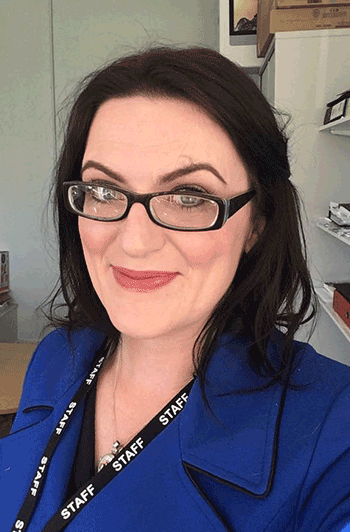Children and adults self-harm while enduring lengthy waits for an autism diagnosis, says an expert.
Autism tutor Rachel Church says both research and clinical evidence point to a greater risk of self-injury in those waiting for a diagnosis or treatment.

Swansea University autism tutor Rachel Church: she warns that children and adults self-harm while waiting for an autism diagnosis
Church, a Swansea University specialist, says parents fear that their children experience mental health problems when autism is left undiagnosed.
Church previously ran an advocacy service in Wales for around 10 years.
Waits for a diagnosis in Wales can take between four and just over five months. However, Church said that parents may have flagged up concerns years before that.
The academic said research shows that waits for a diagnosis or treatment from child and adolescent mental health services (CAMHS) “are creating breakdowns in children”.
Anxiety, school refusal, self-harm and suicidal thoughts
She added that parents complain of children suffering anxiety problems, refusing to attend school, self-harming and having suicidal thoughts.
The self-harm can progress from hair pulling to “actively cutting”, she said.
Also, women are particularly vulnerable to self-harm while waiting for a diagnosis. Church said women and teenage girls “often have to see several different mental health teams over a few years”. All this took place before the teams delivered a diagnosis.
She added: “By that point they have been diagnosed quite later and their mental health has deteriorated in the intervening time period.”
Waiting time more than three years
In 2015, Drs Laura Crane and Elisabeth Hill, of Goldsmiths, University of London, researched waiting times.
They found parents typically encounter a delay of three years and five months between contacting a health worker for the first time and getting a diagnosis.
A Welsh Government spokesperson said the country was investing £13m in a new national integrated autism service.
The spokesperson added that the plan includes a “26-week waiting time target for children referred for possible autistic spectrum disorder or attention deficit hyperactivity disorder (ADHD)”.
Any parent with concerns should contact their GP, the spokesperson added.
Related:
- Discrimination in restricting diagnosis
- Test reveals anxiety as second diagnosis
- New test heralds early autism diagnosis
- Delays in diagnosis deny new therapy
- Huge increase in diagnosis in N Ireland
Published: 17 July 2017















